A new chapter opened in the history of Nigeria, following the inauguration of Asiwaju Bola Ahmed Tinubu as President and Commander-In-Chief of the Armed Forces on Monday, May 29, 2023.
Tinubu, standard bearer of the ruling All Progressives Congress (APC) and winner of the historic February 25 poll, kept a date with destiny at about 10:30 am when he took the Oath of Office and the Oath of Allegiance before Chief Justice of Nigeria (CJN) Olukayode Ariwoola.
Dignitaries, including some visiting heads of state, past Nigerian leaders and representatives of Western countries, defied the early morning downpour to witness the event.
The president, who was resplendent in his flowing white agbada with a customised green cap to match, was accompanied by his wife, Senator Oluremi Tinubu.
Tinubu’s swearing-in was preceded by the administration of two oaths on Vice President Kashim Shettima, who was accompanied by his wife, Hajia Nana.
After the oath-taking, the Armed Forces flag and National flag were lowered by military men in a symbolic way to signify the end of President Muhammadu Buhari’s tenure as Commander-in-Chief.
The flags were passed through the Commander of the Brigade of Guards, Brigadier General Aminu Umar, to Chief of Defence Staff (CDS) Gen. Luck Irabor, who delivered the flags to the former president.
Tinubu received the flags from his predecessor, in what turned out to be Buhari’s final assignment.
New national flags were raised to mark the commencement of Tinubu’s era as Commander-in-Chief.
The raising of the flags was followed by a rendition of the national anthem to complete the process.
Thereafter, former President Buhari departed the venue and headed for the airport from where he was flown to his hometown Daura.
Other highlights of the ceremony include the inspection of the Armed Forces and Police parade by Tinubu and the firing of a 21-gun salute and an aerial display by some Air Force aircraft to the admiration of the guests.
President Tinubu also rode on a military jeep to go around the arena, greeting guests and acknowledging cheers.
He then gave his inaugural speech, which he started with eulogies for former President Buhari.
He said: “Here, permit me to say a few words to my predecessor, President Muhammadu Buhari. Mr President, you have been an honest, patriotic leader who has done his best for the nation you love.
“On a more personal note, you are a worthy partner and friend; may history be kind to you. For many years, Nigeria’s critics have trafficked the rumour that our nation will break apart, even perish.
“Yet here we are; we have stumbled at times, but our resilience and diversity have kept us going.
“Our burdens may make us bend at times, but they shall never break us; instead, we stand forth as Africa’s most populous nation and as the best hope and strongest champion of the Black Race.”
Dignitaries at the ceremony included former Head of State Gen. Yakubu Gowon, former President Goodluck Jonathan, President of Niger Republic Mohamed Bazoum, President of Côte d’Ivoire Alassane Ouattara, President of South Africa Cyril Ramaphosa, President of Senegal Macky Sall and President of Sierra Leone Julius Maada Bio.
Others were the President of Burundi Evariste Ndayishimiye, the President of the Republic of Congo Denis Sassou Nguesso, the President of Central Africa Republic (CAR) Faustin-Archange Touadera, President of Gabon Ali Bongo Ondimba, President of Tanzania Samia Saluhu Hassan, President of Liberia George Weah, former President of Kenya Uhuru Kenyatta and Rwandan President Paul Kagame.
Also present were the President of Ethiopia Abiy Ahmed, President of Ghana Nana Akufo-Addo, Prime Minister of Morocco Aziz Akhannouch, Vice President of Venezuela Delcy Rodriguez, President of the Transitional Military Council of Chad, Mahamat Derby; President of the African Development Bank (AfDB), Akinwunmi Adesina; Chairman of Dangote Group, Aliko Dangote; Senate President Ahmad Lawan and House of Representatives Speaker Femi Gbajabiamila and wife, Salamatu.
Kogi State Governor Yahaya Bello, former Ogun State Governor Segun Osoba, APC National Chairman Senator Abdullahi Adamu, National Secretary Senator Iyiola Omisore, Presidential Transition Council (PTC) Chairman Boss Mustapha, Archbishop John Praise Daniel, Chief of Army Staff (CAS) Lieutenant General Farouk Yahaya, Chief of the Air Staff Air Marshal Isiaka Oladayo Amao, Chief of Naval Staff Admiral Awwal Zubairu Gambo and Inspector General of Police Usman Alkali-Baba also witnessed the event.
Others were former APC Interim National Chairman Chief Bisi Akande, former Ogun State Governor Segun Osoba, serving and former governors, traditional and religious leaders, captains of industry and members of the diplomatic corps.
President Tinubu promised to build a united and peaceful nation, urging Nigerians to bury their political differences and join him on a new journey of healing, nation-building and economic prosperity.

The president emphasised that he will govern, and not rule Nigeria, adding that he will also hold consultations with the people.
He said his administration will accord priority to security as the baseline for the pursuit of prosperity.
Tinubu promised to create one million new jobs through the digital economy and intensify the infrastructure battle across the country.
He promised to review the multiple complaints about multiple taxations by the business community.
President Tinubu charged Nigerians not to allow the opportunity for greater development of the country to slip away.
He said: “Our constitution and laws give us a nation on paper. We must work harder at bringing these noble documents to life by strengthening the bonds of economic collaboration, social cohesion, and cultural understanding. Let us develop a shared sense of fairness and equity.
“The South must not only seek good for itself but must understand that its interests are served when good comes to the North. The North must see the South likewise.
“Whether from the winding creeks of the Niger Delta, the vastness of the northern savannah, the boardrooms of Lagos, the bustling capital of Abuja, or the busy markets of Onitsha, you are all my people. As your president, I shall serve with prejudice toward none but compassion and amity towards all.”
Tinubu said Nigeria, in its over 60 years of existence, has endured hardships that would have made other societies crumble, stressing that the country has survived by the grace of diversity, resilience and strength.
He added: “To the surprise of many but not to ourselves, we have more firmly established this land as a democracy in both word and deed.”
In Tinubu’s view, “the handover symbolised our trust in God, enduring faith in representative governance and belief in its ability to reshape the nation into the society it was always meant to be.”
To advance the common vision of a better Nigeria, the president solicited the support of Nigerians to join him in making Nigeria a more perfect nation and democracy such that the Nigerian ideal becomes and forever remains the Nigerian reality.
He explained that though he fought hard to win the election, his victory did not make him any more Nigerian than his opponents, who he pledged to relate to as compatriots.
Tinubu said: “The outcome reflected the will of the people. However, my victory does not render me any more Nigerian than my opponents, nor does it render them any less patriotic.
“They shall forever be my fellow compatriots. And I will treat them as such. They represent important constituencies and concerns that wisdom dare not ignore.”
The President maintained that the poll was tough, but fairly won, adding that he had dedicated the victory to the country with a promise to do his all to advance its progress.
Tinubu said: “This is the proudest day of my life. But this day does not belong to me. It belongs to you, the people of Nigeria.”
On the economy, President Tinubu said his administration would target a higher GDP growth and significantly reduce unemployment.
He promised to offer budgetary reform that would stimulate the economy without engendering inflation.
On his concrete plan for improved GDP growth, he said: “Our industrial policy will utilise the full range of fiscal measures to promote domestic manufacturing and lessen import dependency.
“Electricity will become more accessible and affordable to businesses and homes alike.
“Power generation should nearly double and transmission and distribution networks improved. We will encourage states to develop local sources as well.”
Tinubu assured local and foreign investors that his administration would review all complaints about multiple taxations and other “anti-investment inhibitions”.
“We shall ensure that investors and foreign businesses repatriate their hard-earned dividends and profits home,” he said.
Tinubu said his administration would review all complaints by investors about multiple taxations and various anti-investment inhibitions so that investors and foreign businesses can repatriate their hard-earned dividends and profits home.
On security, he said: “Security shall be the top priority of our administration because neither prosperity nor justice can prevail amidst insecurity and violence.
“To effectively tackle this menace, we shall reform both our security doctrine and its architecture.
“We shall invest more in our security personnel, and this means more than an increase in number.
“We shall provide better training, equipment, pay and firepower.”
Tinubu reiterated his determination to tackle unemployment by creating “meaningful opportunities for our youth to benefit from one million new jobs in the digital economy”.
He said: “Our government also shall work with the National Assembly to fashion an omnibus Jobs and Prosperity Bill.
“This bill will give our administration the policy space to embark on labour-intensive infrastructural improvements, encourage light industry and provide improved social services for the poor, elderly and vulnerable.”
The President commended the action of the Buhari administration to phase out fuel subsidy, which he said, would save the country at a time of drying resources.
He said: “We shall instead re-channel the funds into better investment in public infrastructure, education, health care and jobs that will materially improve the lives of millions.”
Tinubu said the petrol subsidy regime will end with the commencement of his administration.
According to him, the subsidy has over the years favoured the rich more than the poor.
He said: “Subsidy can no longer justify its ever-increasing costs in the wake of drying resources.”
President Tinubu said Nigeria’s monetary policy needed thorough housecleaning, charging the Central Bank of Nigeria (CBN) to work towards a unified exchange rate.
He said: “This will direct funds away from arbitrage into meaningful investment in the plant, equipment and jobs that power the real economy.”
He said his administration would treat both new and old naira notes as legal tender, saying despite its intended merits, the controversial currency swap policy of the CBN “was too harshly applied”, given the number of unbanked Nigerians.
The President said his “primary foreign policy objective must be the peace and stability of the West African sub-region and the African continent,” promising to work with the Economic Community of West African States (ECOWAS), the African Union (AU) and other willing partners in the international community to end extant conflicts and to resolve new ones.




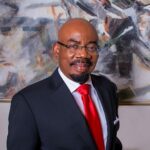
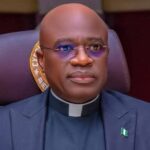
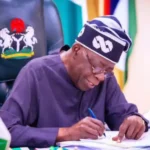
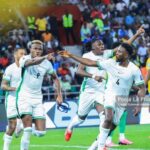


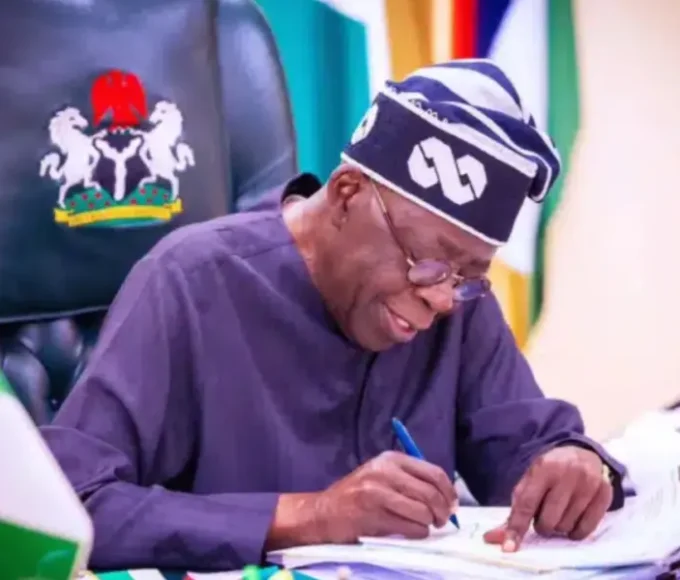

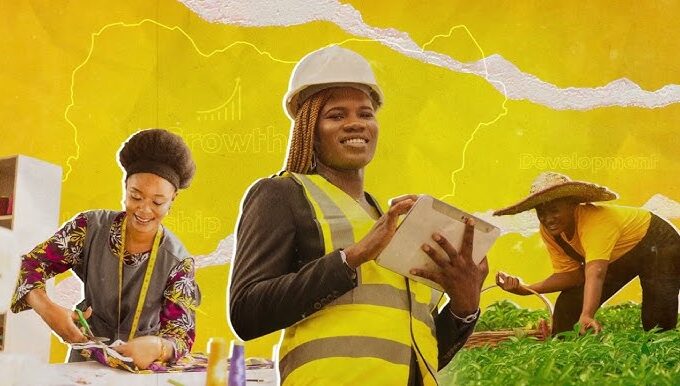
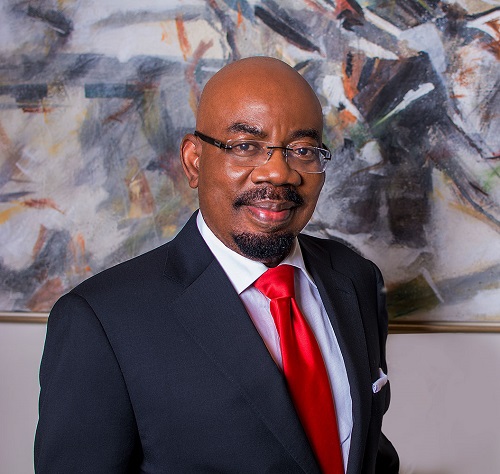
Leave a comment